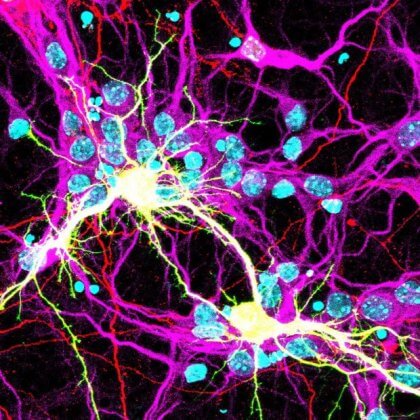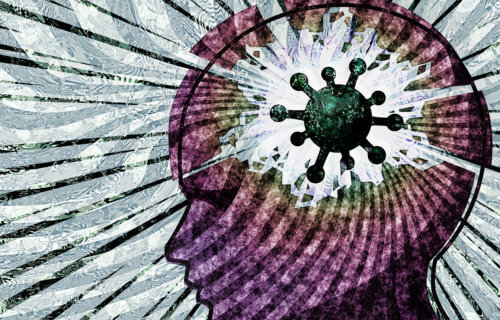BRISBANE, Australia — COVID-19 infections have a lengthy track record of impacting both neurological health and thinking abilities. Some patients experience brain inflammation, while others are left dealing with long COVID-related “brain fog” months after supposedly recovering. Now, new research out of Australia is providing yet another piece of the viral puzzle when it comes to uncovering the full relationship between SARS-CoV-2 and brain health.
Scientists at the University of Queensland have discovered that certain viruses, including SARS-CoV-2, are capable of causing brain cells to fuse, leading to malfunctions that eventually produce chronic neurological symptoms.
Both Professor Massimo Hilliard and Dr. Ramon Martinez-Marmol from the Queensland Brain Institute have been working to explore how viruses alter the function of the nervous system. Meanwhile, when it comes to SARS-CoV-2, the virus that causes COVID-19, examinations have detected it within the brains of people living with long COVID months after their initial infection.
“We discovered COVID-19 causes neurons to undergo a cell fusion process, which has not been seen before,” Prof. Hilliard says in a university release. “After neuronal infection with SARS-CoV-2, the spike S protein becomes present in neurons, and once neurons fuse, they don’t die. They either start firing synchronously, or they stop functioning altogether.”

Using an analogy, Professor Hilliard likened the role of neurons to that of wires that connect switches to the lights in a kitchen and a bathroom.
“Once fusion takes place, each switch either turns on both the kitchen and bathroom lights at the same time, or neither of them,” he explains. “It’s bad news for the two independent circuits.”
This discovery potentially offers a new explanation for persistent neurological effects following a viral infection.
“In the current understanding of what happens when a virus enters the brain, there are two outcomes – either cell death or inflammation,” Dr. Martinez-Marmol comments. “But we’ve shown a third possible outcome, which is neuronal fusion.”
Dr. Martinez-Marmol adds numerous viruses cause cell fusion in other tissues while also infecting the nervous system, and could consequently be causing the same problem there.
“These viruses include HIV, rabies, Japanese encephalitis, measles, herpes simplex virus and Zika virus,” he concludes. “Our research reveals a new mechanism for the neurological events that happen during a viral infection. This is potentially a major cause of neurological diseases and clinical symptoms that is still unexplored.”
The study is published in the journal Science Advances.
You might also be interested in:
- Man misdiagnosed with long COVID actually had brain tumor growing for 10 years
- Mild case of COVID-19 while pregnant does not slow brain development in babies
- COVID can cause lingering brain damage — even in mild cases


So, are they finding this in vaccinated as well as unvaccinated people? If they aren’t tracking that, then how do we know it isn’t the Covid Vax that’s causing the problem? We don’t!!
covid vaccine caused similar problems .must ask if they been vaccinated before
i’m pretty sure all the chronic and permanent problems from covid can be traced back to actually being results of the faulty “vaccine” that doesn’t prevent catching or spreading of it’s supposed target.